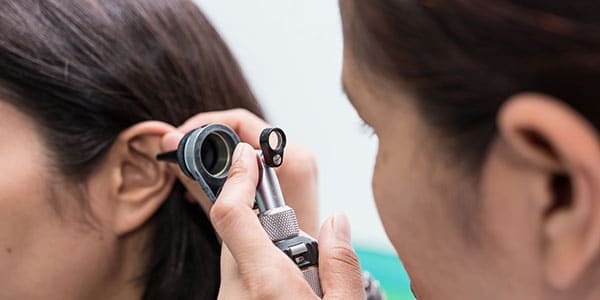Since many women have been known to experience symptoms of hearing loss during menopause, these changes in hearing have been studied by doctors and medical professionals for several years.
This common issue with menopausal women who are experiencing hearing troubles has found one link to a therapy that might be causing these hearing issues in many. Of course, menopause on its own is going to have several adverse effects on the way a person hears each day, but another factor that could be contributing to the loss of quality hearing is associated with a hormone therapy to help ease the menopausal symptoms.
The Natural Levels
During menopause, the natural levels of hormones decrease considerably, which was often thought to be a factor in these hearing issues. The use of oral hormone therapies have been known to offer some protection against the loss of hearing, but recent studies have found quite a different understanding of this therapy and the loss of quality hearing.
Older women who underwent the oral therapy during the later stages of menopause had greater hearing loss symptoms than others. There is little to be shown about younger women undergoing menopause with the hormone therapies developing issues with their hearing.
Losing Hearing
This issues with the hearing actually affects about 48 million individuals in the United States alone. This is more than 20-percent of the adult population in the country, and while women seem to be lower in number than men, most of the development of this loss of hearing in women is due to hormone replacement therapies.
There are still many confusions as to why women are less likely to develop issues with their hearing. Some researchers think that women’s hormone estrogen levels are higher, which protects the inner ear. However, during menopause, the levels of estrogen and progesterone tend to decline considerably, which could be the cause of the hearing troubles.

Using HRT for Too Long
Studies have shown that using hormone replacement therapies for a prolonged time could have considerable effects on the hearing of the users. The more an individual takes these hormone therapy medications, the higher the risk is of obtaining hearing problems.
Those who are older in their menopause might find that their risk is also higher for hearing issues. There are both risks and benefits for menopausal women when it comes to hormone replacement therapies, and only the patient preparing to take the medication should make the decision of whether to take the therapy or not.
The Initial Test
There were three initial tests done on women who are going through menopause and hormone replacement therapies. The tests were done on 32 women who were taking the hormone replacement therapies and between the ages of 60 and 86, and there were 32 women of the same ages that did not have the hormone replacement therapies.
One test evaluates the brain function and processes, while the other two tests focused on the processing of sound in the ear. The women who were on the hormonal therapy did much worse on the test than the women who were not on the therapy. The test that showed the worst information was the test that showed how the brain processes the sounds.
With this information in mind, the researches have talked about putting in place more extensive studies to truly look at what the hormone replacement is helping and whether it is worth the risk of hearing problems.
If the risks truly outweigh the benefits, then the therapy should be pulled from the market. However, if the benefits outweigh the risks, then the hormone replacement should remain a part of the menopausal treatment that it is today.
The hormone replacement therapies are widely used treatments for menopausal women. They reportedly help with the fluctuating hormone levels that are common during this time of life, but there are risks that come with taking these medications.
One of the biggest risks is hearing problems and loss of hearing in many patients. With so many studies that discuss and observe the risks of these hormone replacement therapies, there should be adequate research soon to fully understand whether the therapies are more helpful or more harmful to the patient.
The hearing issues are a common occurrence in menopause, but it is just recently that researchers are testing the probability that the hormone replacements are causing the issues. There is quite a possibility that the studies will prove whether hormone replacement therapy is better for patients or worse in many ways. Only time will tell.





